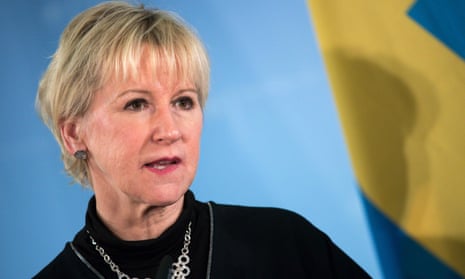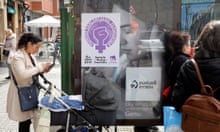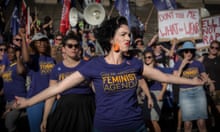The human suffering in Syria is beyond comprehension. Years of conflict have forced millions from their homes and left hundreds of thousands dead or wounded. A whole generation is growing up without security and without proper access to education and healthcare.
The only long term solution to the Syrian conflict is a political one. It is therefore of the utmost importance that the peace talks resume and continue towards tangible results.
The fact of the matter is that:
- Almost half of all peace agreements fail within five years (pdf).
- Women so far have been dramatically under-represented in peace processes.
- Recent research from the Philippines and the ongoing Colombian peace talks show that inclusive peace processes, where both women and men participate, substantially increase the likelihood of peace agreements being reached and sustained.
If the parties involved in the peace talks do not include women, can they be obliged to in order to improve the chances of success? We can at least support the women who choose to assert themselves, and there is no lack of them.
The Swedish government is working on bringing Syrian women to Geneva to make sure they are heard in the peace process. I talk to these women via Skype and try to support them in every way possible. I know they will be strong voices for peace and dignity.
Half of the population of the world is female. We cannot have a situation where they are not represented at the negotiating table. It is also my firm belief that having women represented in the peace talks will result in more options to work with.
The empowerment of women and girls is a true example of smart politics. It transcends the divide between hard and soft security that enables effective and sustainable peacebuilding. Sixteen years since the adoption of UN security council resolution 1325 on women, peace and security, we can firmly state that the promotion of gender equality is not only a matter of women’s rights, but also, more importantly, a matter of ensuring peace and security for all.
A successful peace process is not just about reaching a ceasefire. It is also about justice, education, health, reconciliation and the fair distribution of resources. No warlord can achieve this. A sustainable peace process lays the foundation for resilient institutions that promote economic, political and social emancipation for all.
Peace processes, therefore, need to be inclusive. Women must actively participate in all decision-making processes at all levels and be active in defining priorities and resource allocation, in times of peace and in times of war.
Wherever I have travelled in the world, from Ukraine to Colombia to the Democratic Republic of Congo, I have met brave women who strive to de-escalate violence and promote initiatives for peace, often in very dangerous environments where the personal risks are extreme. The work of these women deserves our full support and long-term commitment.
As part of my government’s broader feminist foreign policy, we have also initiated a Swedish network of women peace mediators and are simultaneously taking part in the development of a Nordic women’s mediator network. The goal of this process is not only to strengthen our national capabilities, but also, more importantly, to cut across traditional divides and create cooperative networks with international women mediation teams from across the globe.
Mediation must be recognised as the real weapon for peace. Both the security council and the general assembly have committed to strengthening the UN’s mediation capacity. Important work has been done, but we still have a long way to go.
The situation in the world calls for a feminist foreign policy that aims to strengthen women’s rights, representation and access to resources. We will continue our work to involve women in peace processes to help ensure a more sustainable society.
To put it simply: more women – more peace.
Join our community of development professionals and humanitarians. Follow @GuardianGDP on Twitter. Join the conversation with the hashtag #SheMatters.








